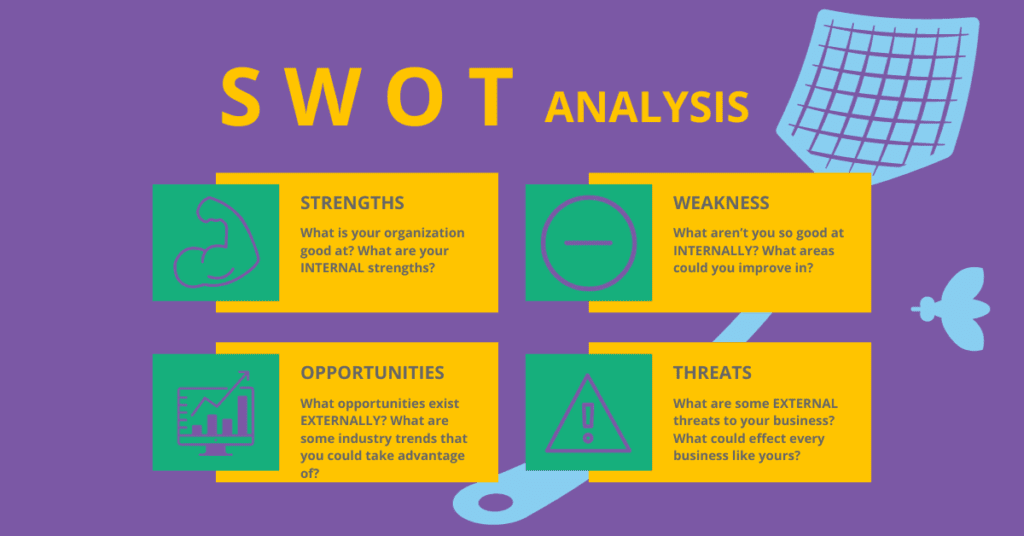Today, we’re diving into a crucial part of your marketing journey – figuring out your ideal customers. You might be thinking, “Who are my perfect customers, and how can I reach them?”
Well, don’t worry, we’ve got your back. But first, what exactly is a target market and why is it important to your business?
What is a target market?
So, what’s this “target market” thing, and why should you care about it for your small business marketing? Well, it’s like this:
Your target market is basically the group of people who are most likely to love what you’re offering – your products or services. These are the folks who resonate with what you do and are more likely to become your loyal customers.
Now, why is this important? Here’s the deal:
So, in a nutshell, understanding your target market is like having a secret weapon in your small business marketing arsenal. It helps you save time, money, and effort while connecting with the right people who will help your business thrive.
It’s all about making your marketing journey smoother and more successful.
5 Steps to Define Your Target Market
Okay, now that we understand a bit more about target markets, let’s start to define yours.
Start with Your Current Customers
To understand your target market, begin by looking at your existing customers. Who are they? What do they have in common? Look into their basic info like age, gender, location, and income.
But don’t stop there; also, think about what they like, how they behave, and what problems they face. This info will help you create a profile of your target market.
Check Out Your Competitors
Take a look at what your competitors are doing. Who are they attracting? While you shouldn’t copy them, studying their customers can give you valuable insights.
Identify any gaps they might be missing or not serving well, and explore ways to stand out by catering to those segments.
Understand Specific Needs and Problems
Local businesses thrive when they offer solutions to specific community needs or problems. Dive into your products or services and figure out which groups benefit the most.
For instance, if you run a bakery, maybe your gluten-free options attract health-conscious folks with dietary restrictions. Knowing these specifics helps you tailor your marketing message to the right audience.
Use Surveys
Surveys can be super helpful! Engage your customers in conversation and ask for feedback. Use online surveys, social media polls, or even simple in-store questionnaires.
By asking the right questions, you’ll gain deeper insights into what your customers love about your business and what they’d like to see improved.
Keep Testing and Refining
Finding your target market isn’t a one-time thing. It’s an ongoing process of learning and adjusting. As you start implementing your marketing efforts, keep an eye on the results.
Use data and analytics to see which strategies resonate best with your ideal customers. Be open to making changes and refining your approach as you go.
Remember, the more you know about your target market, the better you can tailor your messaging and offerings to meet their needs. Speak directly to their problems and aspirations, and you’ll build a loyal customer base that keeps coming back for more.
Time to do your homework! Working through all five steps will definitely take you some time. Your homework today will get you started but you'll have to tackle the rest on your own. Spend 20-30 minutes writing down what you know about your customers. Use Step 1 as your guide to the type of information that you may consider. Organize it however you like, I'm a spreadsheet guy so I'd just start listing listing customers and their characteristics in a table. You can free write this or even mind map some things. Choose whichever method works for you. Once you have your data, dig in and start finding the commonalities. Start trying to pull all the characteristics together and write out a single encompassing description. Don't worry if it doesn't fit every single customer. You're trying to find the average. You may end up with something like this: "My customers are between the ages of 25 and 35. They are early into married life and do not yet own their homes. They have an annual household income above $80,000 and live within a 5 minute drive of my store. They are health conscious and concerned about the environment and sustainability." Now you've got the start of a defined target market! But don't stop just because this exercise is complete, keep working through the five steps and really narrow down who your target market is. You can use this information to help guide your decisions about marketing.
BONUS Content
Interested in the target market for theBIZtutor? We started defining our target market before this site started becoming a reality. The earlier in your venture you can define a target market, the better off you will be.
Really, this should be one of the first things that you do in any business venture.
Our target market lives in the US and is about 25-40 years old. They are part of the generation that everyone calls Millennials. They are getting serious about their side hustle, are a solopreneur, or own and operate a small business with a revenue below $500K. They value knowledge and want to learn how to improve their business. They can’t afford expensive consultants and have so much to do that they don’t have a ton of time to spend on learning activities.
We will continue to develop and refine our target market as we go, but this is the basis for a ton of decisions that we’ve made on this website. For example: in the mind of this target market a “.com” URL is the gold standard for internet legitimacy. They are skeptical of sites with “.net” or the any of the alternatives like “.xyz”, “.me”, “.store” etc.
So when we were on the hunt for a domain name, we made sure to get a “.com” so we wouldn’t be hindered by the unconscious bias in the mind of our target market.



